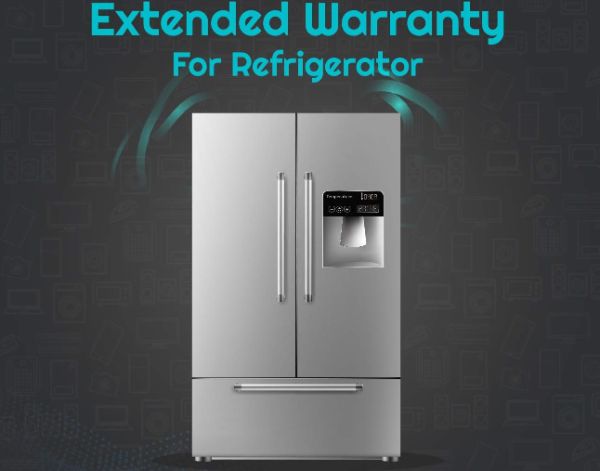When purchasing a new refrigerator, one question that often arises is whether or not to invest in an extended warranty. Extended warranties offer additional coverage beyond the standard manufacturer’s warranty, providing peace of mind and protection against unexpected repairs or breakdowns.
In this blog post, we will explore the factors to consider when deciding whether to buy an extended warranty for your refrigerator, helping you make an informed decision that suits your needs and budget.
Table of Contents
Manufacturer’s Warranty Coverage
Before considering an extended warranty, it’s important to understand the coverage provided by the manufacturer’s warranty. Most refrigerators come with a standard manufacturer’s warranty that typically lasts for one to two years. This warranty covers defects in materials or workmanship during the specified period. Evaluate the duration and terms of the manufacturer’s warranty to determine if it provides sufficient coverage for potential issues that may arise.
Potential Repair Costs
Consider the potential repair costs for your refrigerator. Research the average costs of common repairs and replacement parts for refrigerators of the same make and model. This information can help you gauge the financial risk of potential repairs beyond the manufacturer’s warranty period. If the potential repair costs are high, an extended warranty might be a worthy investment to protect against unexpected expenses.
Reliability and Durability of the Brand
Take into account the reputation and reliability of the brand you are considering. Some brands are known for producing durable, long-lasting refrigerators with fewer issues, while others may have a higher incidence of repairs. Research consumer reviews, consult experts, and gather information on the reliability and durability of the brand to assess the likelihood of needing repairs or experiencing problems in the future. If the brand has a strong track record, an extended warranty may be less necessary.
Your Usage and Lifestyle
Evaluate your usage patterns and lifestyle. If you have a large family and heavily rely on your refrigerator for storing perishable items, an extended warranty might be beneficial, as the increased usage can lead to more wear and tear on the appliance. Similarly, if you frequently move or have a history of experiencing issues with appliances, an extended warranty can provide added protection and peace of mind.
Cost of the Extended Warranty
Consider the cost of the extended warranty relative to the potential benefits it offers. Extended warranties vary in price, and the cost will depend on factors such as the length of coverage and the specific terms and conditions. Compare the cost of the extended warranty to the estimated repair costs and the overall price of the refrigerator itself. Ensure that the cost of the extended warranty aligns with your budget and provides reasonable value for the coverage it offers.
Existing Homeowner’s Insurance or Credit Card Coverage
Check if your existing homeowner’s insurance policy or credit card offers any coverage for appliance repairs or breakdowns. Some insurance policies or credit card providers include such coverage as part of their benefits. Review the terms and conditions of your insurance policy or credit card agreement to determine if you have existing coverage that would overlap with an extended warranty. If you already have coverage, purchasing an extended warranty may be redundant.
Customer Service and Support
Consider the level of customer service and support offered by the manufacturer or the extended warranty provider. Read reviews or seek recommendations to assess the responsiveness, reliability, and efficiency of their customer service. Prompt and reliable customer service can make a significant difference in the event of a breakdown or repair.
Conclusion
The decision to purchase an extended warranty for your refrigerator is a personal one that depends on various factors. Assess the coverage provided by the manufacturer’s warranty, evaluate potential repair costs, consider the brand’s reliability, and reflect on your own usage patterns and lifestyle. Take into account the cost of the extended warranty and any existing coverage you may have through insurance or credit cards. Finally, consider the level of customer service and support provided by the manufacturer or extended warranty provider.
Ultimately, the decision to buy an extended warranty on your refrigerator should be based on a combination of factors including your budget, the potential repair costs, and your comfort level with assuming the risk of potential repairs. If the manufacturer’s warranty is short and you anticipate high repair costs, an extended warranty may offer peace of mind and financial protection. However, if you have confidence in the brand’s reliability, your usage is moderate, and you have alternative coverage through insurance or credit cards, an extended warranty may not be necessary.
Remember to carefully review the terms and conditions of any extended warranty before making a decision. Take note of what is covered, any deductibles or fees, and the duration of coverage. Consider reputable and reliable warranty providers that have a track record of excellent customer service.
In conclusion, purchasing an extended warranty for your refrigerator is a personal choice that depends on your circumstances and preferences. Assess the factors mentioned above and make an informed decision that aligns with your budget and provides you with the peace of mind you desire.

